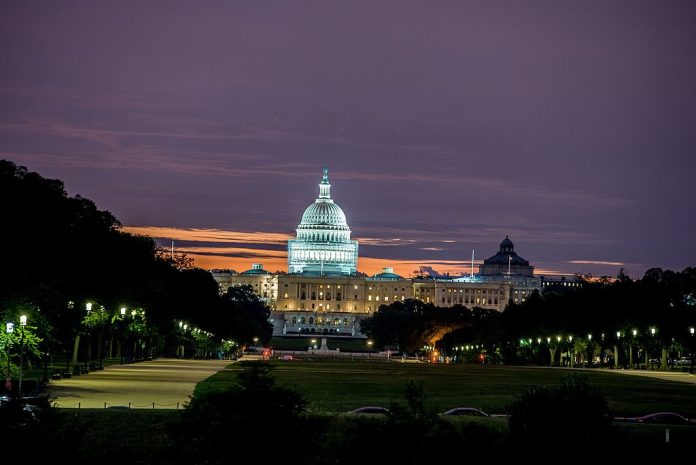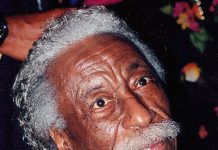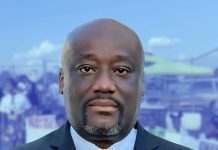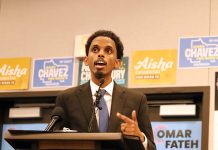
Since being elected to Congress in 2018 as the first African-born Member to serve, I have worked to reshape engagement with the continent within the United States. As you might expect, my deep personal connection to Africa fuels my passion for advancing more just and mutually empowering partnerships between the U.S. and Africa. So do the many constituents of mine with personal connections to the continent, whether as Peace Corps volunteers, researchers, or African immigrants and refugees like me. I wanted to create a forum to help my colleagues understand that Africa is a continent of 54 different countries with very different and unique contributions and challenges. We desperately need a foreign policy that takes that into account. I am grateful to the Biden Administration who shares this vision and has made engagement with the continent a priority, including hosting the U.S.-Africa Leaders Summit and establishing an Advisory Council on African Diaspora Engagement in the United States.
My first interaction with the U.S. government was in the refugee camp in Kenya where I lived as a child. I remember the USAID workers, the State Department officials, and even Members of Congress like Donald Payne, Sr., who came to visit the camps. These experiences profoundly shaped my understanding of what good American foreign policy can do around the world. They also helped me understand the tragedy that so many people in Africa now first interact with the U.S. government through a drone strike, a crippling sanctions program, or through the weapons we provide to countries violating human rights.
Getting our relationship with Africa right is not just a matter of goodwill, it’s also a matter of national security. It has been one of my goals as a Member of Congress to expand the group of lawmakers who pay close attention to our policies there, and to expose them to the voices and experiences of African people whose lives are directly and profoundly impacted by choices made halfway around the world in Washington, D.C.
During my first two terms in Congress, I served on the Africa subcommittee of the House Foreign Affairs Committee under the leadership of one of the great champions of Africa policy, my friend, and now Mayor of Los Angeles, Karen Bass. This included one term as Vice Chair of the subcommittee. During my time on the committee, we focused on creating an environment of respect for human rights, local control of development, and genuine respect and partnership for our African colleagues. Even in the partisan rancor of the Trump Presidency, we also found plenty of common ground with our Republican colleagues, working together to renew PEPFAR, expand protections for trafficking victims, and demand accountability for serious human rights violations.
Closer to home, one of my proudest legislative accomplishments has been working with my colleagues in the House and Senate to create a legal pathway to citizenship for Liberian DED holders, many of whom live in my district. It was a long and sometimes difficult battle, but we got it done by working together and pushing leadership in the House and Senate to prioritize it. For my first State of the Union, I invited local Liberian, Linda Clark as my guest to push for action on this. My office has also worked to secure and extend TPS for Somalis, Sudanese, Cameroonians, Ethiopians, and other Africans as we work towards pathways to permanent citizenship like we were able to secure for Liberians.
One thing I came to realize during my first few years in Congress was that, with a small number of Members really concerned about Africa policy, we spent a lot of our time putting out fires – chasing from one crisis to the next. To be clear, there have been many tragedies on the continent during my time in Congress that have deserved our full attention, from the brutal wars in Sudan and Ethiopia to the rash of military coups across the Sahel, and from the worsening effects of climate change on the continent to some of the world’s most significant refugee crises.
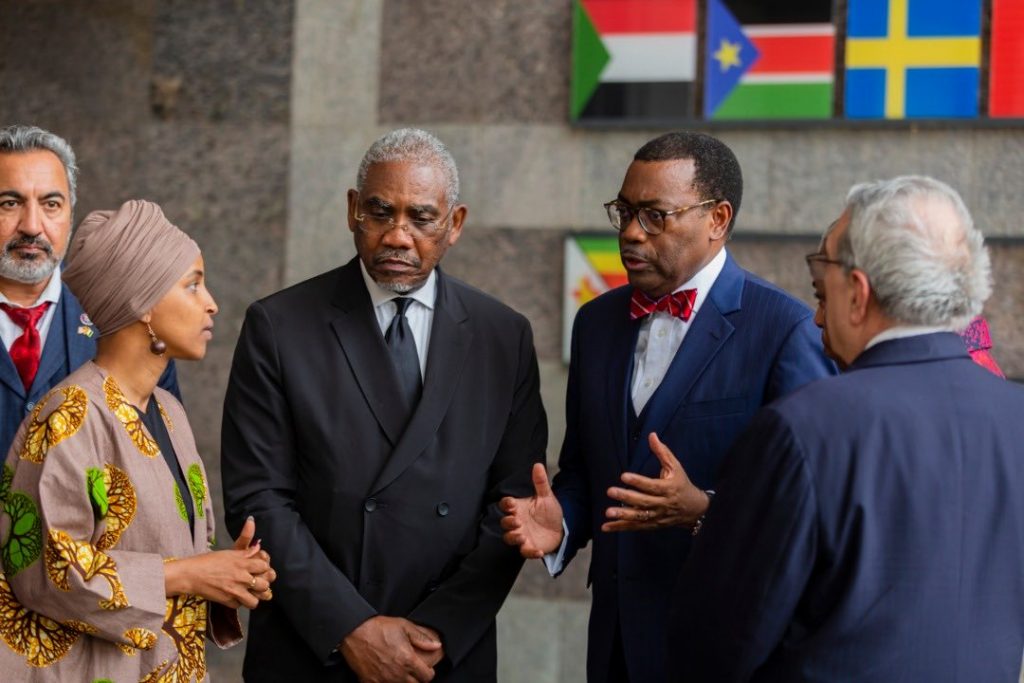
But I also know profoundly that focusing on those crises only tells part of the story about Africa, and reinforces stereotypes of a poverty-stricken, conflict-afflicted, hopeless land. It is also crucial for Members of Congress to hear about the many successes: the public health miracles, the extraordinary social movements emerging from African youth, and the new structures being put in place that may unlock Africa’s incredible economic potential.
Last year, I formed the U.S.-Africa Policy Working Group to put these ideas into practice. We would be welcoming both Members of Congress who have worked on Africa for years and those who are new to this necessary area of U.S. foreign policy. We would engage with a wider range of experts, preferring people on the ground to people at think tanks in DC. We would foster open and honest conversations with the Biden Administration, trying to replace political posturing and talking points with sincere engagement on the most vexing issues facing U.S. policy on the continent. My long-term goal with this working group is that it will become a central player in creating lasting partnerships to build up a base of expertise so that Congress can be more actively involved in U.S. policy in Africa and help move the conversation forward for many years to come.
Through the Working Group, I was proud to partner with my colleague Congressman John Garamendi to push for a resumption of U.S. food aid to Ethiopia in the aftermath of the biggest humanitarian aid diversion scheme in the country’s history. I held the first Member-level engagement on the crisis in Sudan on the House side, bringing my colleagues together to hear from Sudanese civil society about the economic and humanitarian crises unfolding after the war broke out between the SAF and the RSF.
I am also working to make sure Congress is considering Africa whenever we consider policies that affect Africa. On climate change, for instance, countries in the Horn of Africa, which are least responsible for carbon emissions, often face devastating droughts, crop failures, and extreme weather. Back in 2022, I advocated for additional funding to address climate resilience in the region and was thrilled to learn that USAID was providing $105 million in critical humanitarian aid to the Horn of Africa and the World Bank approved a $55 million International Development Assistance grant to support Somalia’s economic recovery. However, I was reminded that more must be done, including expanding climate financing to help African communities confront escalating climate strains. I have been proud to lead Congressional efforts on loss and damage, debt relief, and other critical measures to ensure that Africa does not have to continue bearing an unfair burden for the climate crisis.
Beyond these urgent crises, however, U.S. policy in Africa must systematically reorient towards economic partnership from the ground up to empower small businesses, women’s cooperatives, youth innovators, and marginalized communities who have been historically denied globalization’s benefits. I have emphasized the need for trade and aid approaches that truly benefit African nations, not just American companies. For too long, U.S. policy has prioritized counter-terrorism efforts and business investments over real economic development. We need a completely new approach centered on cooperation and solidarity with African partners.
Too often, Africa policy making in Washington occurs in an echo chamber devoid of insights from those most impacted on the ground. The solutions must come from Africa itself. The good news is that they already are – African civil society, social movements, academic and scientific ingenuity, and increasingly open markets between countries on the Continent are flourishing. Much of my work in Congress is just making sure my colleagues know it, and do what we can to support it. I have a bold vision for mutual prosperity and solidarity between the United States and Africa. U.S. policy can uplift rather than oppress, and partner with rather than condescend to. I have hope that a new era in U.S.-Africa relations is possible – one defined by bold reinvention untethered from self-limiting precedent.
Let’s get to work!
About Congresswoman Ilhan Omar
Rep. Ilhan Omar represents Minnesota’s 5th Congressional District in the U.S. House of Representatives, which includes Minneapolis and surrounding suburbs. She is the first Black person born in Africa to be elected to the U.S. House of Representatives.

